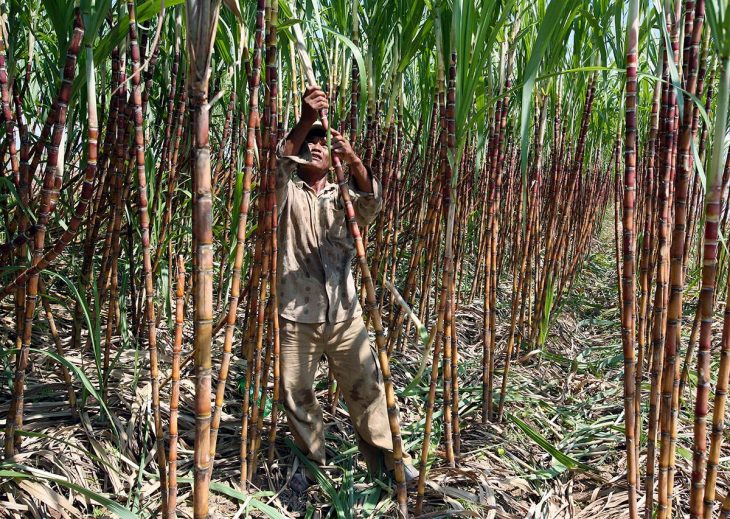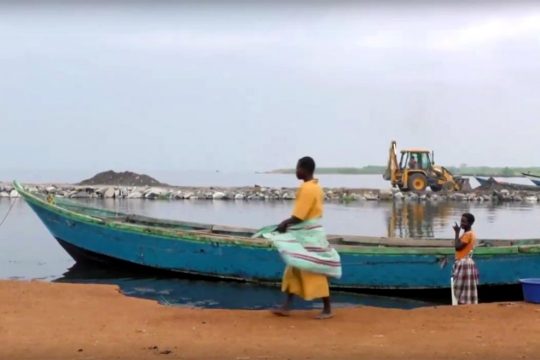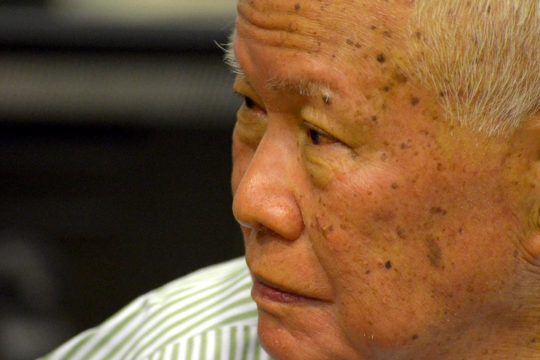“It is a victory for us, and it is a first in the region,” says Eang Vuthy, director of Equitable Cambodia, a Cambodian non-governmental organization. The activist is savouring the moment a day after the first hearing in an exceptional trial on September 21 in Bangkok. For the first time in south-east Asia, a multinational company is being sued for its activity in a foreign country in a "class action" suit, a collective action of plaintiffs who have suffered the same damage. The case pits Thai sugar giant Mitr Phol, fifth largest sugar producer in the world and a supplier of Coca Cola, against 711 Cambodian peasant families. This is a David and Goliath battle that began in 2008. The case is emblematic of the consequences of a certain development vision, where the Cambodian government granting vast land concessions has caused multiple human rights violations. According to a 2014 report submitted to the ICC prosecutor's office by London-based law firm Global Diligence, between 350,000 and 400,000 people were forcibly displaced over a 15-year period as a result of the concessions. According to these lawyers, the situation could amount to a crime against humanity.
The trial against Mitr Phol is a perfect example of this phenomenon. In 2008, three of its Cambodian subsidiaries were granted 9,400 hectares of land by the Cambodian government in Odar Meancheay province, northern Cambodia, as a 70-year concession to produce and process sugar cane. The sugar company is now accused of forced population displacement, land grabbing and destruction of private property.
2,000 families forced off their land
Hoy Mai remembers the first land clearings in her village. At first she was told that the land was for the villagers. But she was soon disillusioned: the houses were burned, the rice fields destroyed. “I feel we are victim of the investment. If there is no Mitr Phol investment in Cambodia, there are no forced evictions or burning of houses. That is why we continue our struggle for the company to be accountable for what it did. The company did not respect the law and should be responsible,” she says.
Hoy Mai personifies the tenacity of the aggrieved villagers, who have been waiting for reparations for 14 years. This petite, 60-year-old woman is so famous that Thai activists recognize and greet her when they pass her in the Thai capital Bangkok.
One of the non-governmental organizations supporting these villagers, Inclusive Development International (IDI), estimated that 2,000 families in 26 villages had to leave their land as a result of the Mitr Phol concession. They lost not only their rice fields, but also access to grazing land, common land, and forest resources, an integral part of their livelihoods.
“At first, we did not know much about the law, but the NGO explained to us and supportedus, saysSmin Tit, one of three plaintiffs who were in Bangkok at the end of September. The villagers first tried to go to the Cambodian courts. But when Hoy Mai and her late husband walked 400 kilometres to plead their case to Cambodian Prime Minister Hun Sen, they were prosecuted. “I was accused of cutting five hectares of forest a day while I was pregnant! How could I have done that?” she asks. She got an eight month prison sentence.
Impossible justice in Cambodia
In 2014, the villagers, supported by IDI, Equitable Cambodia and the Cambodian League for the Promotion and Defence of Human Rights (Licadho), filed a complaint with the Thai Human Rights Commission. They based their complaint on the Human Rights and Business Action Plan, which had just been adopted by Thailand, the first country in the region to do so. At the end of its investigation, the Commission noted the numerous human rights violations committed by Mitr Phol, underlining the impoverishment of the populations, and asked the sugar company to repair the damage suffered. The following year, the Thai company obtained from Cambodia the cancellation of the concessions and withdrew from Cambodia. But its promises of reparations were not kept. In 2018, the plaintiffs filed a class action suit in the Thai courts. Their request was rejected at first instance, the court pointing out the logistical complexities of such a trial. But on appeal, in July 2020, this decision was overturned.
Hence the hearing on September 21, which “set a precedent for the community to bring the complaints outside of Cambodia”, according to Eang Vuthy. “We expect to win the case because the Thai court is much more independent and not being controlled by government like in our country,” says Hoy Mai.
After such a long wait, she nevertheless found the September 21 appointment with the judge a bit short and cryptic. “We were not asked anything. I am a bit afraid because of the delay, but also happy because of the support we received. I am also concerned if we cannot win,” she says.
The preliminary hearing, which lasted 30 minutes, mainly allowed the two parties’ representatives to conclude that they need time. “Under class action, both parties need time to submit all the evidence to the court, and check it before the court sets a date for the trial. Both parties said they were not ready. We are still waiting for documents that need to be translated into Thai,” explains Sor Rattanamanee Polkla, the Thai lawyer for the plaintiffs.
The Coca-Cola documents
To support their arguments, the plaintiffs are relying on documents recently obtained from a lawsuit in the United States. “In order to support the proceedings in Thaïland, we filed a discovery action against Coca Cola, which we won earlier this year,” explains Eang Vuthy. “Coca Cola just handed over 5,000 documents in relation to the business partnership with Mitr Phol. We will have to go through them to see what can be supplied to the Thai court. These documents are confidential and can only be used for the court. But it is very important for our understanding of the chain of supply.”
Sor Rattanamanee Polkla thinks the battle should be played out particularly on the statute of limitations and the chain of responsibility, as Mitr Phol believes that the abuses committed are the work of the local authorities. But the lawyer intends to have the moral prejudice recognized by relying on a precedent. “In a mining case, we asked compensation for fear and panic. The court accepted the principle.”
The parties are to reconvene on January 25 for another preliminary hearing. The trial on the substance of the case is expected to start in April 2023, with a verdict at the end of next year. A happy outcome would be a consolation for the victims, whose fight against Mitr Phol has upset their lives. “Five of my children went to Thailand to find work as we could not afford to live at home. One of them disappeared. My husband died during the struggle,” recounts Hoy Mai. Today, she grows sweet potatoes on land donated by the Cambodian authorities. Like her, 312 families have received a two hectare plot of land, below the average five hectares they previously held. More than 300 families are still waiting. Hoy Mai speaks with pride of her 13-year-old son, born while she was in prison. He studies well in school. And his name, Samnang, means luck. It was chosen by her lawyer.







